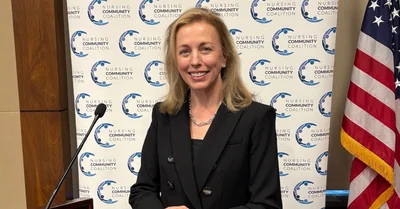David Bernhardt, former secretary of the Department of the Interior, critiques new regulations under the Inflation Reduction Act in a Washington Times op-ed, arguing they will hamper domestic energy production by imposing higher fees and regulatory burdens on federal land.
"These efforts to burden federal lands with red tape and raise the cost of development stand in stark contrast to the benefits of the American energy revolution that were achieved by opening federal land for development over several decades," Bernhardt wrote.
Bernhardt abstracts that the Bureau of Land Management (BLM) within the Department of the Interior proposes oversight of federally owned mineral rights on 30% of American land. Under the new rule, minimum royalty rates would increase from 12.5% to 16.67%, the minimum bid per acre would rise from $2 to $10 and the annual rental fee per acre would initially double. Approximately 11% of U.S. oil and 9% of natural gas would be subject to these higher fees.
Bernhardt likened the situation to Saudi Arabia, stating, "Though those figures may not seem large, for reference, Saudi Arabia produced approximately 10% of the world’s oil in June."
Bernhardt argues that the new rule is an aggressive effort by the administration to inhibit fossil fuel development. He points to proposed increases in individual lease bonds from $10,000 to $150,000 and statewide bonds from $25,000 to $500,000. Further, he critiques the proposed introduction of "preference criteria" in federal leasing, allowing the administration to consider various factors in deciding what land is offered for oil and gas development.
He cites the current policy of opening federal land for development as a key driver for the American energy revolution. Advances in drilling technology and cheap natural gas have reportedly saved Americans around $203 billion annually and contributed to 10% of GDP growth after the 2008-09 financial crisis.
The Biden administration has framed the rule changes as a means to ensure fiscal responsibility, such as avoiding taxpayer costs for cleaning up abandoned wells and receiving fair returns on federal assets. Bernhardt contrasts this with the proposed cut in rents and fees by up to 80% for solar and wind developments on federal land.
Bernhardt's critique paints a picture of conflicting priorities within the administration and concerns over how these new regulations may impact domestic energy production and the economy. He concludes that the administration's efforts to impose these regulations go far beyond what Congress has mandated, warning that they will "help evict this generational economic miracle from the nation's common property."









